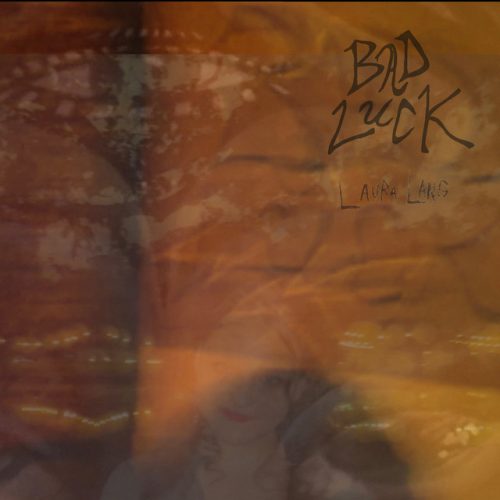Like T. S. Eliot’s poem “The Love Song of J. Alfred Prufrock” and Pete Townshend’s album The White City: A Novel, Laura Lang’s “Love Letter” isn’t what the title says it is. In fact, she tells us in the chorus, “This isn’t a love letter, ’cause I can’t let it be.”
So my question is, what can a song say that a letter can’t?
The instrumental texture is all crunch – overdriven electric guitar, bass like bare feet on hot asphalt, cymbal crashes that interrupt themselves. Even the strummed acoustic guitar (which starts the song with a little right-left-right wiggle in the stereo field, like it’s waving hello) has a solid, metallic sound. All this contrasts with Lang’s voice, which is strong but light, like the breeze when you’re watching the sun set from the top of a parking garage.
The contrast between instrumental and vocals gives a sense of us-against-the-world. When Lang sings on the chorus, “Keep me safe, keep me warm, keep me safe away from harm” it makes sense, because the words exist in a world of heavy, overdriven dissonance. The music hovers behind the lyrics like heavy weather, or maybe the wall of a bunker.
The chorus is also where the song is most letter-like.
It’s speaking to someone directly, making a request or giving instructions. But it’s the chorus where Lang says that the song isn’t, and can’t be, a love letter. “I can’t believe you’re the one who saved me,” she explains. So maybe the problem isn’t that this is an audio recording rather than paper with ink on it – maybe “this isn’t a love letter” because the singer isn’t willing to declare that what’s going on is love.
The lyrics give several reasons for reluctance. It’s “summer vacation” and the other person is a “stranger.” And the scene of the two together is sort of ominous: “I watch the room get dark as you dim the lights.” Maybe there’s something in this relationship that the singer doesn’t quite trust.
The song, in its song-ness, can express the singer’s ambivalence in ways a letter can’t. When Lang sings, “Maybe that stranger saw right through me,” the reverb on her vocals increases so it feels like she’s rushing away from us, across the room, or into her own mind. It’s the sound of self-consciousness. A letter can explain the feeling, but a song can make it felt without having to be explained.
Another difference is a song doesn’t have to be sent. A letter has a destination, a reader; in a way, it needs the other person to complete it. A song can be released, open-ended and directionless, and its “you” can be anyone. The singer can hide behind this openness; sometimes telling a crowd of strangers about your romance is easier than telling the person most directly involved. The other thing the openness of song does is let the story be bigger than one summer romance. Listening to a love song, you may feel like it’s about your love, not just the singer’s or the character’s. In making that connection, you expand the story. Can’t do that with a letter.







